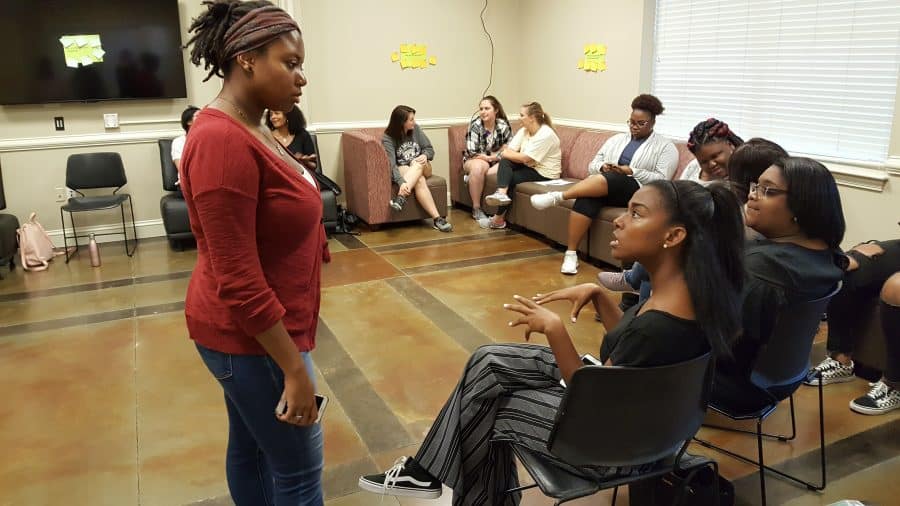The Intercultural Diversity Center hosted their first “Chat &Chew” event on Wednesday, offering free food and a discussion centered around being a minority at a predominantly white institution such as The University of Alabama.
A member of the IDC staff, Alexus Porter, spoke of the relevance and need for events like this on campus.
“We’re trying to promote diversity and inclusion—it’s in the IDC’s mission statement and it’s in the Capstone Creed,” Porter said. “An event like this is a great way to facilitate conversation and get the thoughts out that people might be holding in for various reasons.”
A group of over 50 individuals, comprised of both students and faculty, gathered around the Intercultural Diversity Center, eager to share their thoughts and hear from others. Lining the walls were questions intended to lead the discussion:
“What has your experience as a minority been at UA?”
“Do you feel there is support on campus?”
“Do you feel there is enough representation?”
Attendees considered these questions, among several others, and then discussed their responses and personal experiences as a group.
Noah Hawkins, a junior MIS major, reflected on his personal experience as a minority student at the University.
“I’d definitely say being a minority student has affected my college experience. You definitely have to put in more effort to find your place,” Hawkins said. “[Being a minority student] is not an inherently negative thing, but I’ll say that with socializing you have to put your foot in the door a lot more assertively. That extra work you have to put in has made me more of a go-getter, though, so it’s really been a positive thing for me.”
Panelists embedded in the group—representing organizations such as the University’s NAACP chapter and the Black Student Union—described their own experiences as minorities on campus, and urged students to get involved.
Felicia McKinney, a University graduate student with two undergraduate children at the University, built on this idea of involvement and the weight it can carry on minority students’ college experience as a whole.
“I think how being a minority affects students has to do with how they see themselves; if they see they see themselves as isolated and voiceless, it’s going to have a negative effect on them,” McKinney said. “If they involve themselves in things that are going on and make an effort to see where they fit in the larger UA campus, it can be a positive thing. Who they are isn’t going to change when they leave the campus—it’s going to be with them for life.”
One of the most emphasized issues was the lack of unity among minority students, as well as among the very organizations meant to bring them together. Most attendees contended that events like the Chat & Chew, characterized by their discussion-based structure, are a good first step in bridging this gap.
Teryn Shipman, coordinating student assistant at the IDC, was pleased with the event turnout and the discussion it fostered.
“A lot of people came and seemed to be receptive to what we had to say, and were open to being vulnerable and sharing their own experiences,” Shipman said. “We’re really grateful and amazed.”









